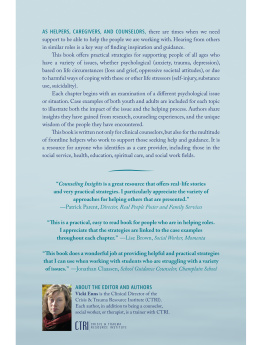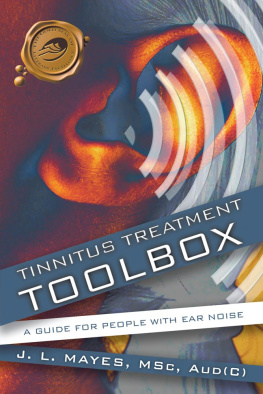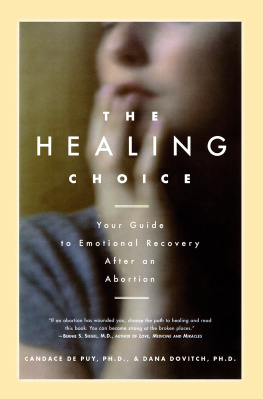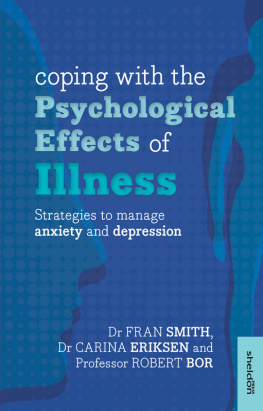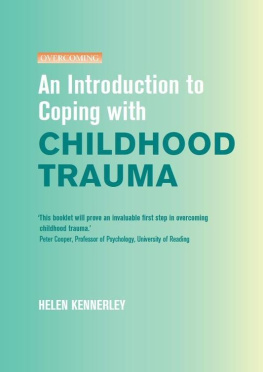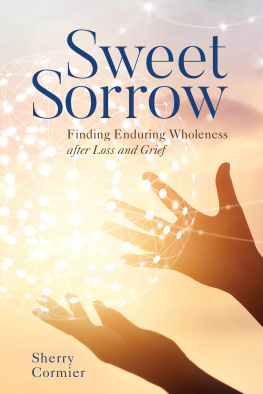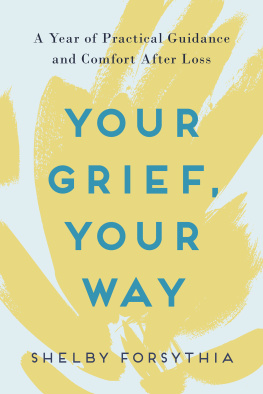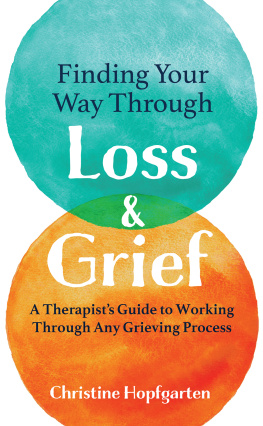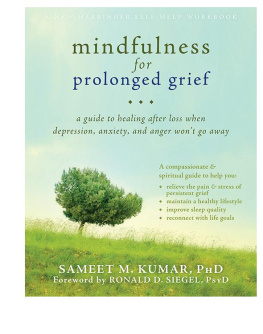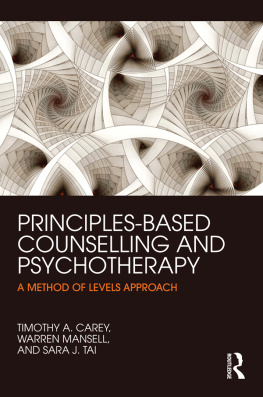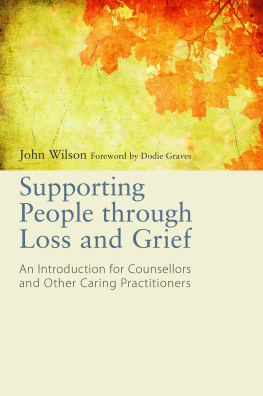

Copyright 2018 by ACHIEVE Publishing. All rights reserved. No part of this book may be reproduced, scanned, or distributed in any manner without written permission.
Published by ACHIEVE Publishing
62 Sherbrook Street, Winnipeg, Manitoba R3C 2B3
www.achieve-publishing.com

Bulk discounts available. For details contact:
ACHIEVE Publishing at 1-877-270-9776 or
This book is typeset in Adobe Caslon Pro and Bernino Sans.
Printed with vegetable-based inks on 100% PCW paper
ISBN: 978-1-988617-03-9 (Canadian edition)
ISBN: 978-1-988617-04-6 (US edition)
ISBN: 978-1-988617-05-3 (ebook)
Printed and bound in Canada
First edition, first printing
Book design by Ninth and May Design Co.
10 9 8 7 6 5 4 3 2 1
Disclaimer: The publisher, editor, and authors disclaim any implied warranties for a particular purpose. The advice and strategies contained in this book may not be suitable for your situation. Names and identifying details of case studies presented have been changed to protect the privacy of individuals. Readers should also be aware that URLs offered as citations and/or sources for further information may have changed or disappeared after the publication date. Furthermore, the editor, authors, or publisher do not have any control over and do not assume any responsibility for third-party websites or their content.
For our clients, who had the courage to allow us
to witness vulnerability and grow along with you.
This book wouldnt exist without you.
CONTENTS
I have been privileged over the last 10 years to be able to get to know each of the nine contributors to this book. In addition to being counselors, social workers, or therapists, they are also trainers with the Crisis & Trauma Resource Institute (CTRI). CTRI is a professional development training organization that provides training and resources in the areas of mental health, counseling skills, and violence prevention. Our purpose is to provide exceptional training and resources to better lives.
As the CEO of CTRI, I provide the overall direction for the development and delivery of our workshops and services. However, it is these trainers who bring the material to life wherever they teach. Each of them has a wealth of experience in helping and supporting people who are struggling with a variety of psychological, social, and situational issues. In addition to their insightful understanding of the issues they write about, these authors present information in a way that is not only helpful but also accessible to a wide range of audiences.
At CTRI, we believe that access to knowledge and skill development changes individual lives, communities, and organizations. Through this book, we are working to distribute timely, relevant, and helpful resources to our clients and society as a whole. This book was not just written for clinical counselors, but also for the multitude of frontline helpers who work to support people who are seeking guidance. This book is a resource for social service and health care providers, educational professionals, social workers, and anyone who identifies as a care provider.
In my role at CTRI, I frequently ask people about why theyve attended a specific training of ours. One common theme is that our workshop participants are looking for solutions to a problem they have encountered with someone they are helping.
This book is designed in the same way as our workshops, which provide practical and actionable strategies for helpers. Each chapter looks at a specific issue or situation that helpers commonly encounter and includes theory, examples of real-life application, and practical strategies. Throughout this book, case studies related to both youth and adults are used to illustrate concepts and strategies.
I am happy youve chosen to read this book, and I am confident that it will provide you with new insights about how to better support and help the people you work with.
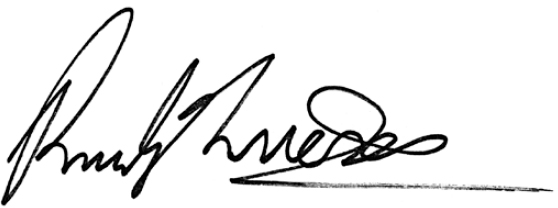
Randy Grieser
CEO, Crisis & Trauma Resource Institute
Author, The Ordinary Leader: 10 Key Insights for Building and Leading a Thriving Organization
Liling feels that the world can be a scary and unfair place. This constant dread keeps her holding onto suicide as an out from her depression.
Alison battles with alcohol use and is afraid of where her drinking has led her, describing the shame she feels that she cannot solve this problem on her own.
Jake has to work to manage his anxiety daily. He has come to realize how deeply scarred he is from years of absorbing homophobic slurs and dismissals.
Oki clearly recalled being forcibly removed from his home at a young age, when he was sent to live in a very remote residential school. This experience stole from him his home, his family, his traditions, his fun, and his innocence as a young boy.
These are some of the people youll meet and the stories youll hear in these chapters. They are ordinary people who sometimes have extraordinary challenges. As helpers, caregivers, and counselors, we can experience both the harsh challenge of promoting change in peoples lives and the tremendous privilege of being allowed into such intimate conversations. Our role, whether formal or informal, is to help alleviate suffering and foster growth. We may get caught in polarized feelings of either being driven to try to fix things and rescue people, or else we can feel helpless and ineffective. Life has a way of making change hard. Hearing from other helpers is a key way of finding balance, inspiration, and guidance to focus our efforts.
Who Should Read This Book
This book is for you if you are someone in a helping role a counselor, principal, parent, teacher, social worker, support worker, neighbor, family member, or anyone who is actively supporting another person who is seeking change. It is for you if you have heard statements that leave you feeling unsure or even stumped, wondering, What is the right thing to say? How can I help? What should I do?
VOICES OF DISTRESS
My mom thinks Im crazy.
Do you know how many times Ive tried to quit drinking and using cocaine this week? Seven times. Do you know how many times Ive failed? Seven times.
You cant change what happened. Im just broken.
I cant take it anymore, and whats the point of living anyway?
Working with people is largely an art form. Rarely is there a clear-cut answer. Yes, research guides us, textbooks inform us, teachers and supervisors teach us models of helping, and a plethora of websites offer sound pieces of advice. These provide a necessary foundation for making informed choices when we are working with people. What you cant get from a textbook or a website, however, are the gut responses, the heartfelt resonances we feel with people, and the unexpected life lessons taught to us by the very people we are trying to help.
In my own practice of more than 20 years as a counselor, couples and family therapist, and supervisor of trainees in a graduate counseling program, I have been humbled over and over again by the innate strength and courage of the people I support. I have spent a long time in graduate and post-graduate study, but I can confidently say I have learned the most from my clients, as they graciously let me walk with them. They have taught me what it means to persevere, to fall and get up again, and to heal. It is this collaboration that provides any kind of meaningful map for this work.
Next page
